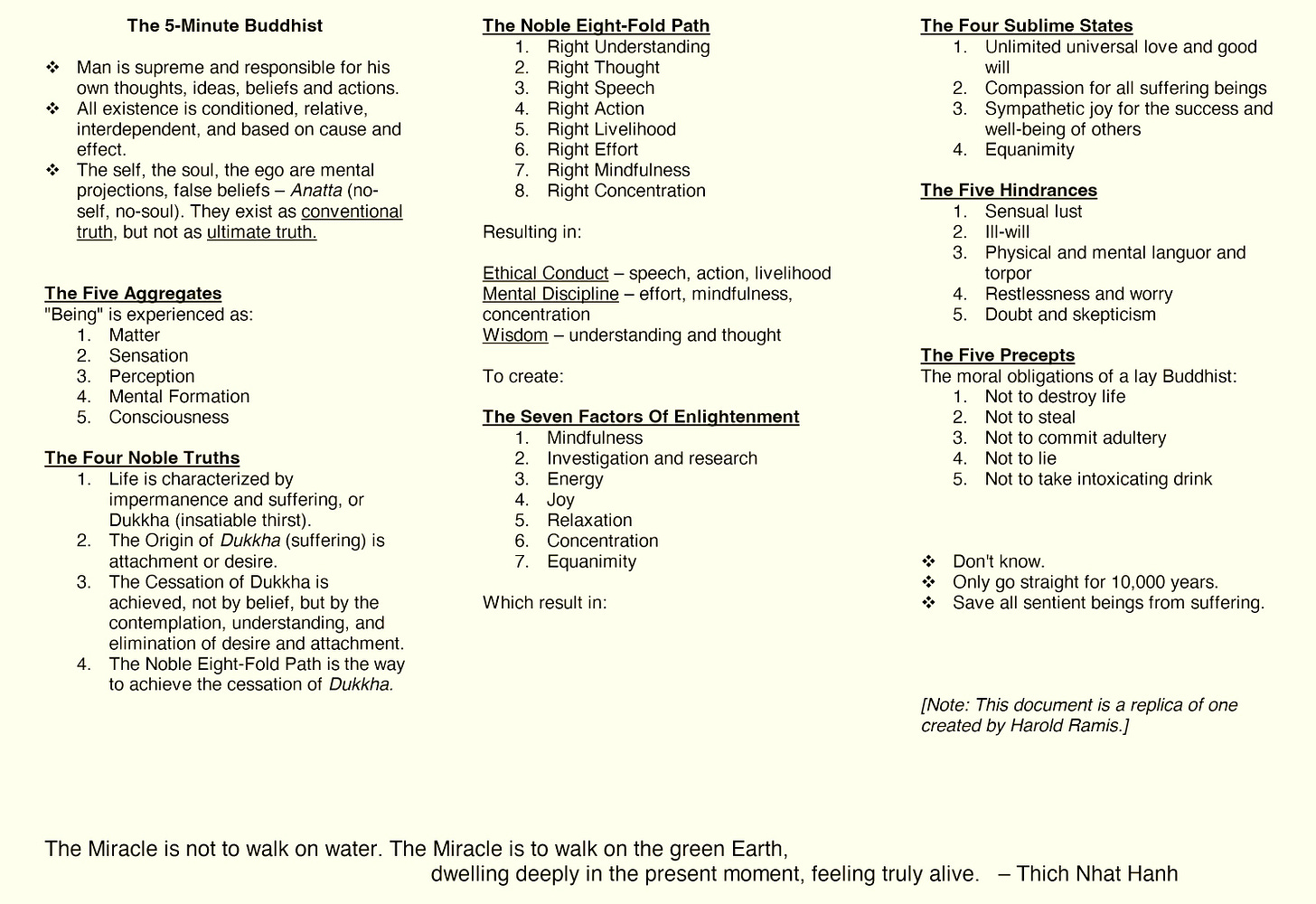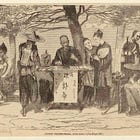Recently, I’ve been on a kick of reading about the 1970s comedy revolution and the people (mostly men, unfortunately) who fought in it. It started as research for a post I’m working on about Caddyshack, but then I just started getting sucked in. (It’s so much less depressing than reading about the 2020s.)
One thing I’ve learned about the people I grew up idolizing: Harold Ramis1 —who died of complications from autoimmune inflammatory vasculitis in 2014 at the age of 69—was a practitioner of Buddhism. It bled into his work. Groundhog Day, now that I think about it, is essentially a Buddhist parable. And the river of angry Psychomagnotheric Slime that flowed beneath New York City in Ghostbusters 2 came from him: “My idea was that negative human energy collects under big cities and has explosive potential on a psychic level. So people would have to be nice to each other,” he told GQ.
Although he could condense the main tenets of the philosophy into a single word—“Kindness”—he also had a longer distillation: just 336 words more. He printed it on a trifold, laminated it, and handed it out to anyone interested. He called it The 5-Minute Buddhist. “The idea was to present a simple Buddhist primer on something the size of a Chinese takeout menu,” he said of the document.
I did some digging online and found a replica.2 If you’ve got five minutes to spare, now you too can be a Buddhist!3
The 5-Minute Buddhist
Man is supreme and responsible for his own thoughts, ideas, beliefs and actions.
All existence is conditioned, relative, interdependent, and based on cause and effect.
The self, the soul, the ego are mental projections, false beliefs – Anatta (no-self, no-soul). They exist as conventional truth, but not as ultimate truth.
The Five Aggregates
"Being" is experienced as:
Matter
Sensation
Perception
Mental Formation
Consciousness
The Four Noble Truths
Life is characterized by impermanence and suffering, or Dukkha (insatiable thirst).
The Origin of Dukkha (suffering) is attachment or desire.
The Cessation of Dukkha is achieved, not by belief, but by the contemplation, understanding, and elimination of desire and attachment.
The Noble Eight-Fold Path is the way to achieve the cessation of Dukkha.
The Noble Eight-Fold Path
Right Understanding
Right Thought
Right Speech
Right Action
Right Livelihood
Right Effort
Right Mindfulness
Right Concentration
Resulting in:
Ethical Conduct – speech, action, livelihood
Mental Discipline – effort, mindfulness, concentration
Wisdom – understanding and thought
To create:
The Seven Factors Of Enlightenment
Mindfulness
Investigation and research
Energy
Joy
Relaxation
Concentration
Equanimity
Which result in:
The Four Sublime States
Unlimited universal love and good will
Compassion for all suffering beings
Sympathetic joy for the success and well-being of others
Equanimity
The Five Hindrances
Sensual lust
Ill-will
Physical and mental languor and torpor
Restlessness and worry
Doubt and skepticism
The Five Precepts
The moral obligations of a lay Buddhist:
Not to destroy life
Not to steal
Not to commit adultery
Not to lie
Not to take intoxicating drink
Don't know.
Only go straight for 10,000 years.
Save all sentient beings from suffering.
“The Miracle is not to walk on water. The Miracle is to walk on the green Earth, dwelling deeply in the present moment, feeling truly alive.” – Thich Nhat Hanh
Always one of my favorites from that group, for reasons that probably aren’t too hard to fathom.
I tried to maintain what I take to be his original formatting as best I could.
I consider myself a Buddhish atheist. A term I made up. One of the projects that’s been keeping my nose above water in the Swamp of Sadness is a book I’m currently calling Buddhism for Assholes.









